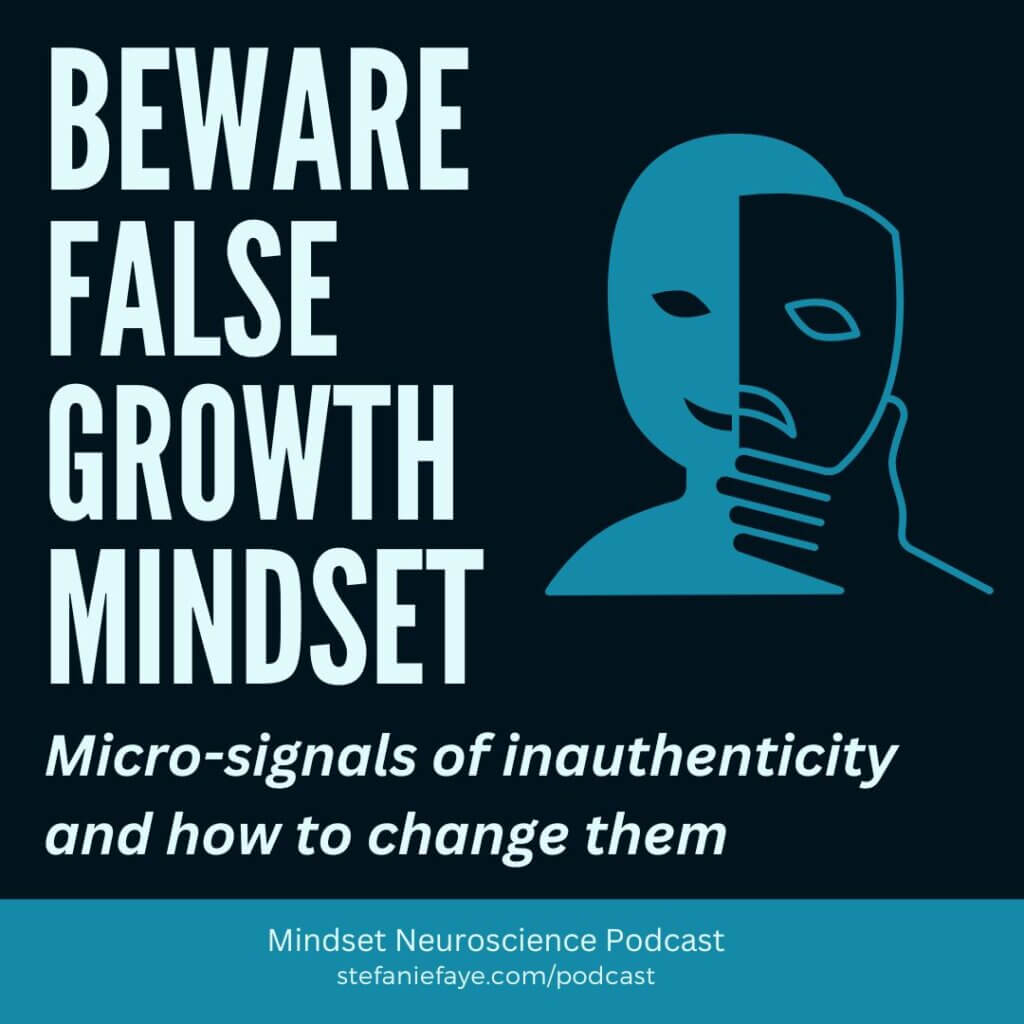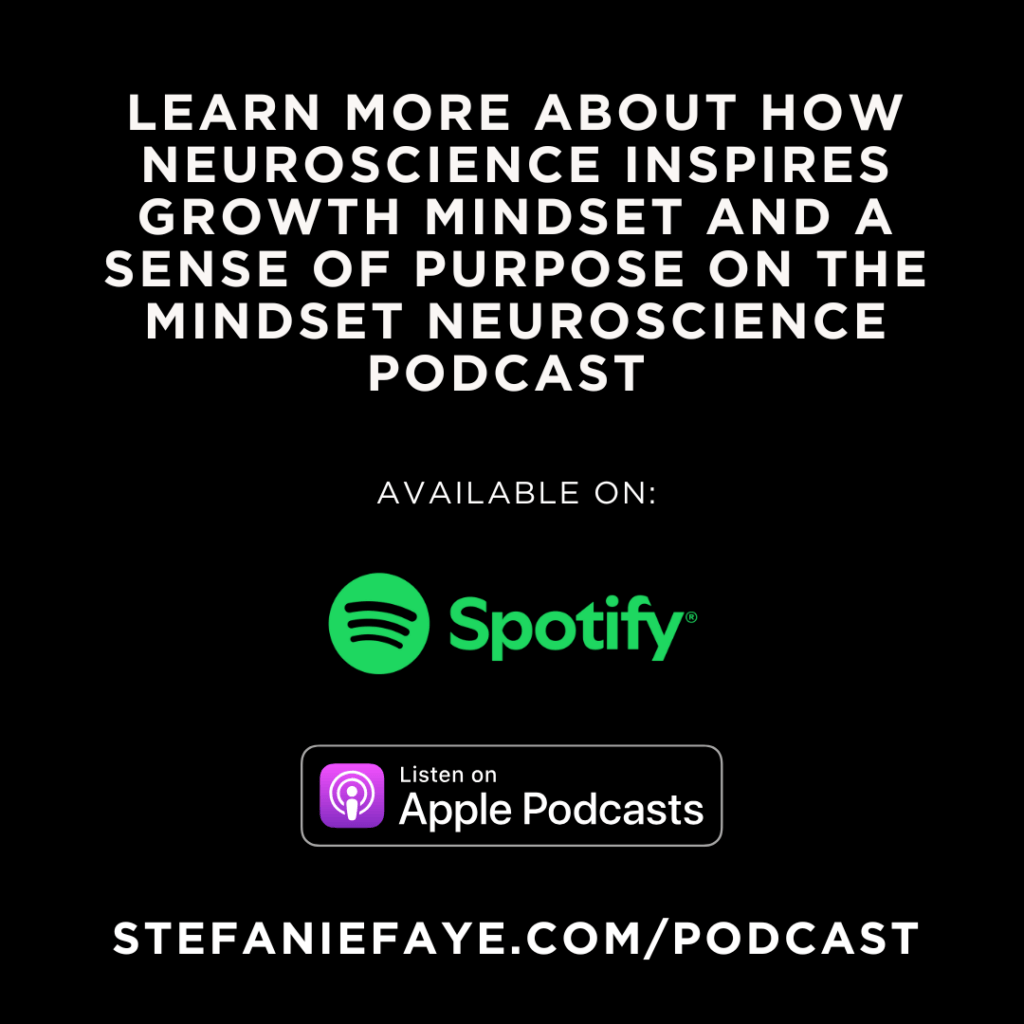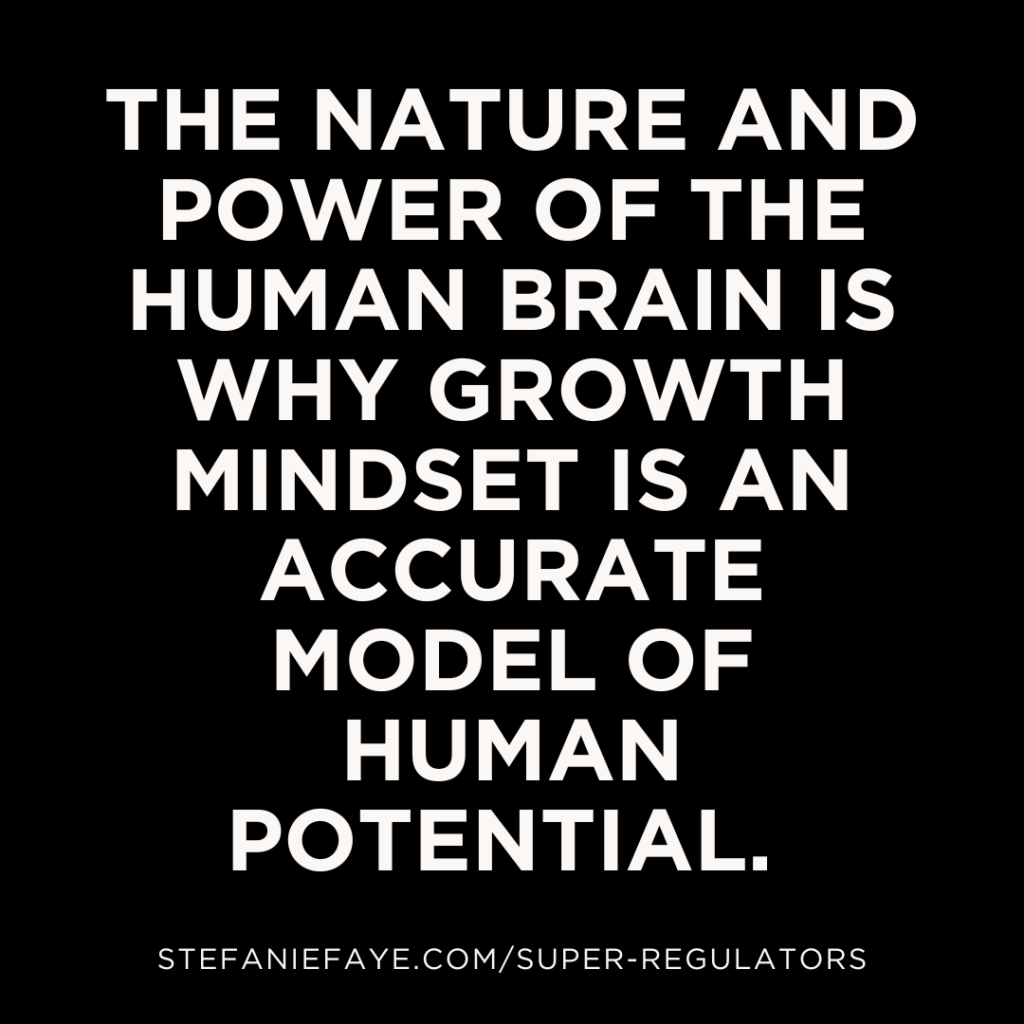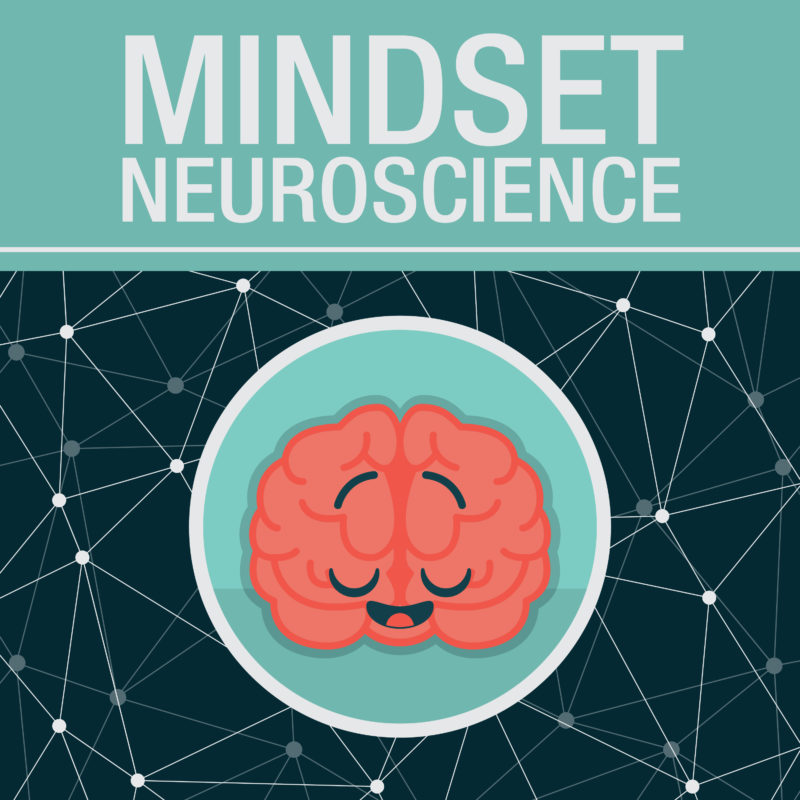When we truly understand the power of the human brain, and we authentically become learners, neuroscience becomes a language of the human spirit - one that empowers and inspires.
Unfortunately, it can also become a language of buzzwords, hype and cheerleading without substance.

There are micro-signals of authenticity that reflect our internal states and that transmit frequencies to others that can lead them to trust us.
However… those signals can also lead people to resist us when they can detect that we are not truly walking our talk.
Listen to this podcast on:
For the past decade, I have been teaching the neuroscience of growth mindset to audiences all over the world and have developed curriculum for non-profits, international organizations and schools to help more people understand the power of the human brain and the influence our Mindset has on our behaviors and life trajectories.
Many people have asked me about how to infuse their organization, their business, or their classroom or school with the idea of growth mindset. I always get excited that people are understanding and learning about neuroplasticity and how our mindset affects us. However, I also see a lot of resistance to it.
A lot of people believe growth mindset is too much of a hype and an overused catchphrase.
A key issue that has occurred is that growth mindset is used in ways and by people who have not necessarily really understood and reflected on it as deeply as they could.
One way I have seen this happen (and research attests to) is that many teachers and leaders skip right to trying to teach it or convince others about its importance, but they have over-simplified the complex research surrounding it, and they have also skipped over the internalizing process.
This is part of what Carol Dweck calls false growth mindset.
Learn more about what false growth mindset is and a 3 step process to help avoid this in today’s podcast.
The bottom line is that when it comes to teaching people how to become more curious, open to challenge, discomfort and iteration - we can’t just talk about it on a conceptual level.
We also have to understand that growth mindset is not an either/or category. We all have a variety of mindsets depending on each context.
As we speak, we send nonverbal micro-signals about how we FEEL as we say the words we are choosing.
We do this partly through sensory motor simulations about what we are saying. The richer and more personal our own experiences are, the more personalized and multisensory those simulations become. The better those simulations are, the better we can find words to them.
This internal-to-external process is what helps others truly understand what we are talking about.
If we’re talking about change, growth and learning - we can include the topic of the powerful ability of the human mind to make meaning, notice mistakes and iterate, to activate new pathways that respond to new experiences.
The human brain is plastic. It is changeable, malleable. And we have the capacity to self-direct this process. We also have to keep in mind, however, that...
Growth mindset is not just about cheerleading.
It's about understanding that the process of learning is complex and full of challenges. And it's about understanding that our mind can lead us to perceive the challenges that come with learning as 'wrong' or something to be avoided.
It’s also about understanding that we can update the meaning we make about mistakes, challenges, effort, and what it takes to learn.
The nature and power of the human brain is why growth mindset is an accurate model of human potential.
We all introduce disbelief and doubt into our own abilities in different contexts. Understanding growth mindset from a neuroscience perspective helps us understand -and hopefully untangle some of those doubts and disbelief about our own power and potential.
It helps when we have teachers who have gone through that journey and who can see that power and potential in others. Those are our growth mindset teachers (people I also call Super-Regulators). And we need them to help us know that continuous growth is possible.

Register for the FREE Neuroscience of Mindset workshop to learn more about how to truly embody growth mindset.
Learn to see through the myths and often missed aspects of mindset that make it one of the most powerful leverage points for learning, growth and personal evolution.
Registration for the Super Regulators Neuroscience Academy ENDS OCTOBER 30th!
I'm so excited to be co-creating this global community of thought leaders and learners dedicated to learning more about Nervous System Regulation, Mindset and Systems Thinking Neuroscience.
Our first Live Intensive is October 30th.
Learn more and get the registration link
(if you've already registered to get updates, I'll be sending you a special offer on October 8th!)



